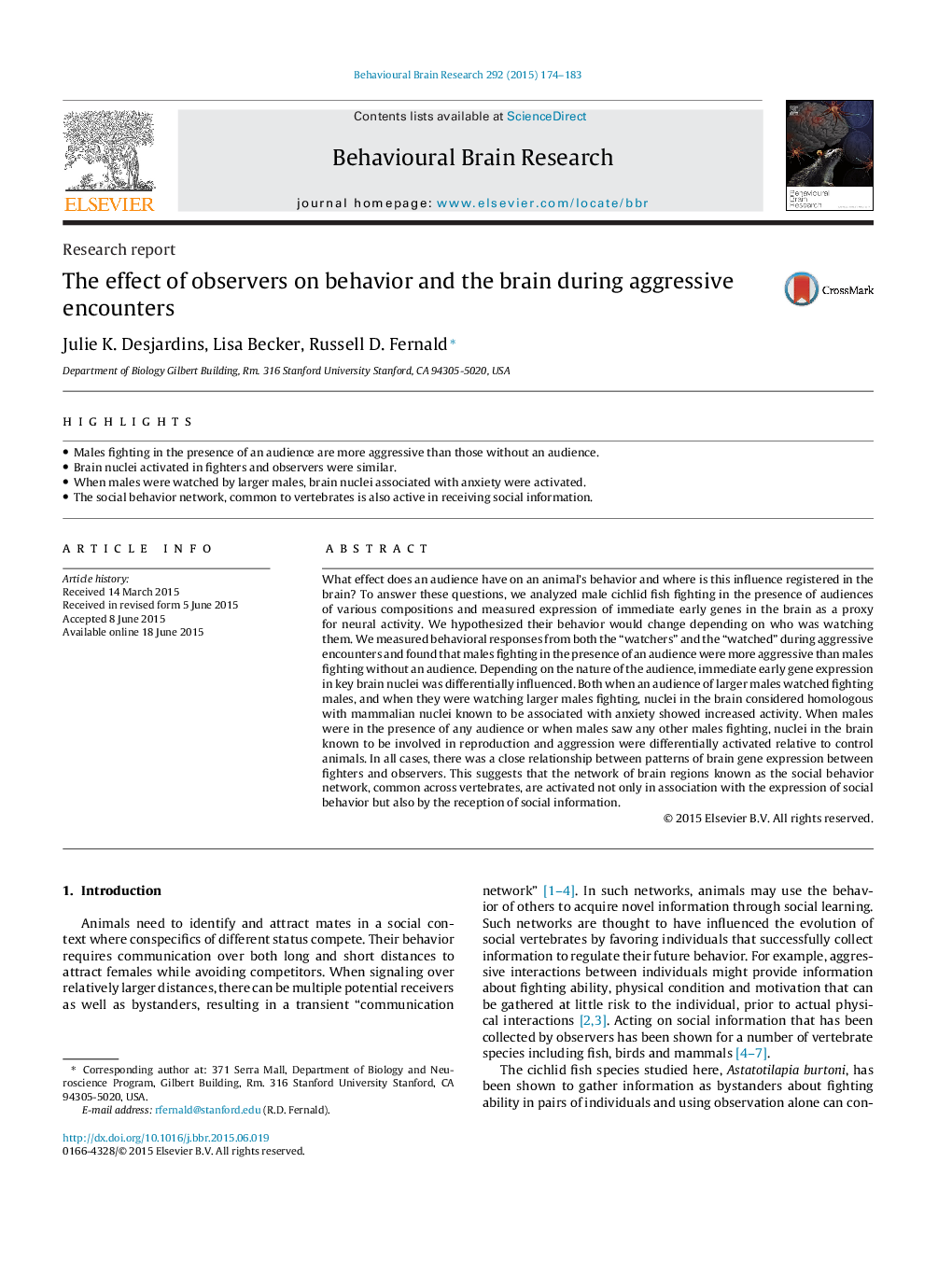| Article ID | Journal | Published Year | Pages | File Type |
|---|---|---|---|---|
| 6256492 | Behavioural Brain Research | 2015 | 10 Pages |
â¢Males fighting in the presence of an audience are more aggressive than those without an audience.â¢Brain nuclei activated in fighters and observers were similar.â¢When males were watched by larger males, brain nuclei associated with anxiety were activated.â¢The social behavior network, common to vertebrates is also active in receiving social information.
What effect does an audience have on an animal's behavior and where is this influence registered in the brain? To answer these questions, we analyzed male cichlid fish fighting in the presence of audiences of various compositions and measured expression of immediate early genes in the brain as a proxy for neural activity. We hypothesized their behavior would change depending on who was watching them. We measured behavioral responses from both the “watchers” and the “watched” during aggressive encounters and found that males fighting in the presence of an audience were more aggressive than males fighting without an audience. Depending on the nature of the audience, immediate early gene expression in key brain nuclei was differentially influenced. Both when an audience of larger males watched fighting males, and when they were watching larger males fighting, nuclei in the brain considered homologous with mammalian nuclei known to be associated with anxiety showed increased activity. When males were in the presence of any audience or when males saw any other males fighting, nuclei in the brain known to be involved in reproduction and aggression were differentially activated relative to control animals. In all cases, there was a close relationship between patterns of brain gene expression between fighters and observers. This suggests that the network of brain regions known as the social behavior network, common across vertebrates, are activated not only in association with the expression of social behavior but also by the reception of social information.
